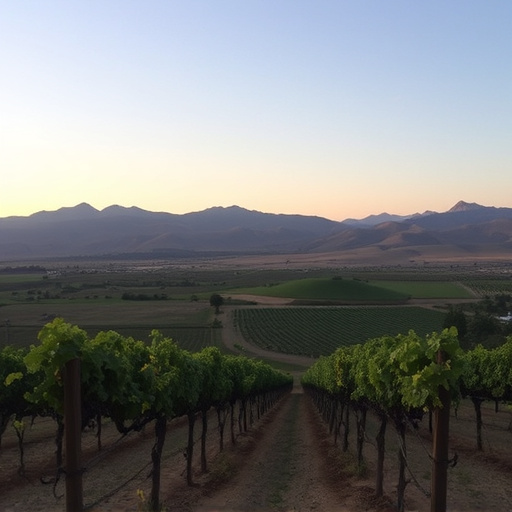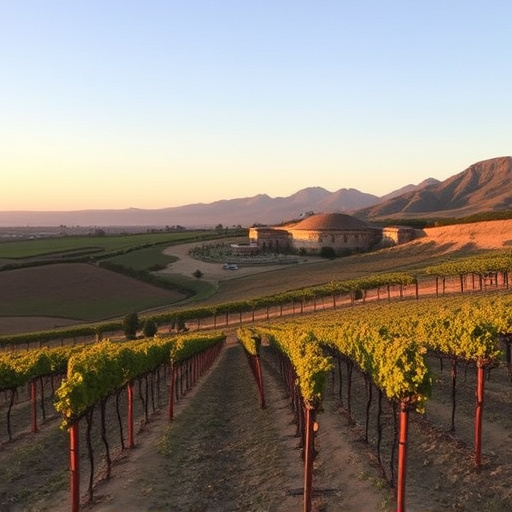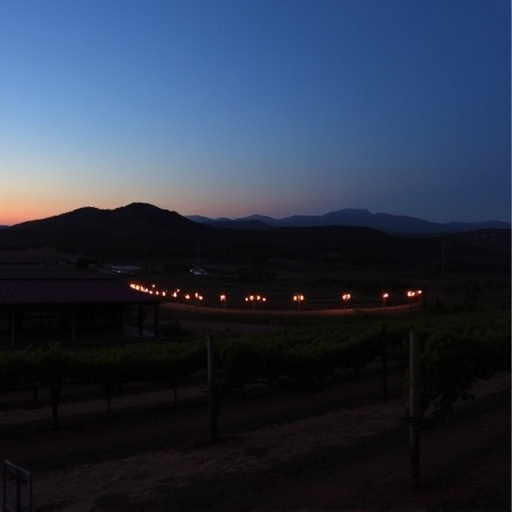Sonoita, Arizona, stands out for its unique terroir and mineral-rich soils, which contribute to exceptional wine characteristics. The blend of volcanic and sedimentary rocks creates diverse nutrients for grapes, resulting in distinctive tastes and aromas that set local wines apart. High elevation and varied terrain create microclimates enhancing these organic varietals. Sonoita is a top destination for wine enthusiasts exploring the diverse flavors of Arizona vino, offering sustainable, high-quality wines that appeal to health-conscious consumers and connoisseurs alike.
“Uncover the secret behind the vibrant and unique taste of Sonoita, AZ wine. This charming region boasts mineral-rich soils that cultivate exceptional organic grape varietals. From understanding the intricate composition of its soil to exploring the benefits of organic farming practices, this article delves into what makes Sonoita wines so special. Discover the popular organic varietals thriving in these fertile grounds and experience the distinctive flavors that have made Sonoita AZ wine a true gem for connoisseurs.”
- Understanding Sonoita's Unique Soil Composition
- The Impact of Mineral-Rich Soils on Grape Varietals
- Organic Farming Practices in Sonoita, AZ
- Popular Organic Grape Varietals Thriving in Sonoita Soils
- Benefits of Consuming Wine from Local, Organic Sources
- Exploring the Distinctive Flavors of Sonoita AZ Wine
Understanding Sonoita's Unique Soil Composition

Sonoita, Arizona, is renowned for its exceptional wine production, largely attributable to its distinctive mineral-rich soils. This region’s terroir, or natural environment, plays a pivotal role in shaping the unique characteristics of Sonoita AZ wine. The soil composition here boasts an intriguing blend of volcanic and sedimentary rocks, contributing to the area’s overall mineral abundance.
These mineral-saturated soils provide a fertile ground for grapes, allowing them to absorb a diverse range of nutrients essential for healthy growth and flavor development. As a result, Sonoita wines exhibit distinct tastes and aromas, setting them apart from their counterparts grown in other regions. The area’s microclimates, influenced by its high elevation and varying terrain, further enhance the complexity of these organic varietals, making Sonoita a sought-after destination for wine enthusiasts exploring the diverse flavors of Arizona wine country.
The Impact of Mineral-Rich Soils on Grape Varietals

The unique mineral composition of Sonoita’s soils plays a pivotal role in shaping the characteristics of grapes grown there, ultimately influencing the distinct flavors and aromas found in local wines. These mineral-rich soils, often characterized by high levels of gypsum and other beneficial elements, provide an optimal environment for various grape varietals to flourish. The diverse range of minerals contributes to the complex profiles of the grapes, allowing for a wide array of wine styles, from crisp whites to robust reds.
Sonoita AZ wine enthusiasts appreciate the ability of these soils to enhance natural flavors. For instance, minerals like calcium and magnesium can add notes of citrus and stone fruits to white grape varieties, while iron and manganese may impart subtle earthy or floral nuances in red wines. This interplay between soil minerals and grapes results in a diverse and captivating sensory experience for wine lovers, solidifying Sonoita’s reputation as a premier wine-producing region known for its organic, mineral-rich varietals.
Organic Farming Practices in Sonoita, AZ

In the heart of Arizona’s scenic Santa Catalina Mountains, Sonoita stands out as a thriving center for organic agriculture, particularly renowned for its mineral-rich soils that produce exquisite wines. Organic farming practices here go beyond simple abstinence from synthetic chemicals; they embrace a holistic approach that respects and enhances the natural ecosystem. Farmers in Sonoita AZ wine regions meticulously nurture their vines, utilizing techniques such as cover cropping to improve soil health, composting to replenish nutrients, and organic pest management to maintain ecological balance without resorting to harmful pesticides.
This commitment to sustainability isn’t just about the environment; it translates directly into the superior taste and quality of the resulting wines. Sonoita’s mineral-rich soils, combined with the region’s unique climate, create a perfect environment for cultivating diverse organic varietals. The result is a range of wines that not only appeal to health-conscious consumers but also delight connoisseurs seeking authentic, terroir-driven flavors.
Popular Organic Grape Varietals Thriving in Sonoita Soils

In the scenic and mineral-rich soils of Sonoita, Arizona, a diverse range of organic grape varietals has found its ideal home. This unique microclimate supports the cultivation of several popular and distinctive wine grapes. One of the most renowned is the Zinfandel, known for its robust flavors and ability to thrive in the region’s warm days and cool nights. The mineral-infused soils contribute distinct characteristics to the wines produced from this varietal, making Sonoita AZ wine a sought-after delicacy among connoisseurs.
Another notable grape that flourishes here is the Grenache, celebrated for its aromatic profiles and versatility in crafting complex blends. The organic farming practices and pristine environments of Sonoita ensure that these grapes reach their peak ripeness, resulting in wines with exquisite taste and quality. These varietals, along with others like Syrah and Mourvèdre, have put Sonoita on the map as a prominent wine-growing region, attracting attention for its exceptional organic offerings.
Benefits of Consuming Wine from Local, Organic Sources

Consuming wine from local, organic sources like those found in Sonoita, Arizona, offers a multitude of benefits. The minerals present in the region’s unique soils bestow distinct flavors and aromas onto the grapes, resulting in truly remarkable vintages that are both complex and delicious. By choosing Sonoita AZ wine, you support sustainable agricultural practices, as organic farming methods prioritize soil health, reduce environmental impact, and promote biodiversity.
Moreover, these locally produced wines often possess superior quality and consistency due to their close connection with the land and minimal intervention in the winemaking process. The absence of synthetic pesticides and fertilizers ensures that each glass is free from potentially harmful residues, making it a healthier choice for your body. Additionally, supporting local winemakers contributes to the vibrancy of the community and fosters a deeper appreciation for the region’s natural resources and culinary heritage.
Exploring the Distinctive Flavors of Sonoita AZ Wine

Sonoita, Arizona, is renowned for its distinctive and delicious wine, a true testament to the region’s unique terroir. The mineral-rich soils play a pivotal role in shaping the flavors of the grapes grown here, resulting in wines that offer an unparalleled sensory experience. When you taste Sonoita AZ wine, you embark on a journey through the heart of this vibrant and bustling community.
Each vintage reflects the distinct characteristics of the soil and climate, creating a symphony of flavors. The organic varietals thrive in this environment, allowing winemakers to craft wines that are not only robust but also incredibly nuanced. From rich, earthy notes to refreshing acidity, Sonoita AZ wine captivates the palate with its indelible and complex taste profile. Exploring these local wines is like uncovering a hidden enigma—a true delight for folks who appreciate the art of viticulture.
Sonoita, AZ, with its distinctive mineral-rich soils, offers a unique environment for cultivating organic grape varietals. The region’s farming practices and diverse vine selections have contributed to a thriving local wine industry, producing exquisite wines with complex flavors. By embracing organic methods and harnessing the power of nature, Sonoita AZ wine has established itself as a game-changer in the culinary world, providing consumers with an unparalleled sensory experience and promoting sustainable agriculture.
